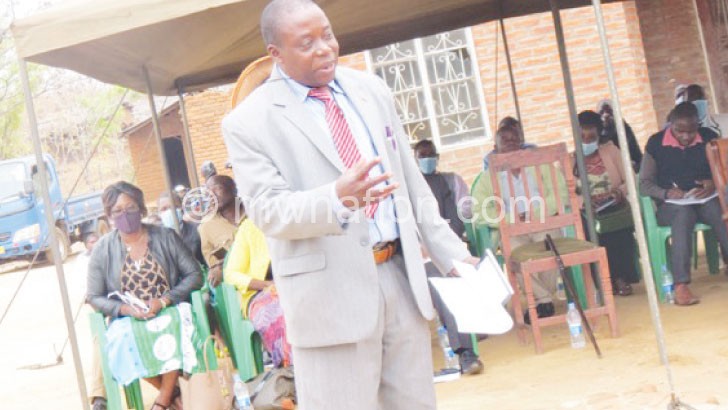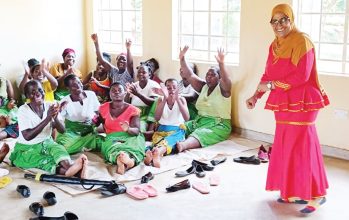Tears, anger for 500 families
It is all tears for over 500 households from Blantyre rural, who are toiling after government failed to compensate them for their land earmarked for a multi-billion kwacha project for the Kamuzu University of Health Sciences (Kuhes).
The people are from group village head Kammata, village heads Denga, Mbedza, Kumanda, Tamvekenji, Dzineso, Lemu, Gomeza, Lipugama, Temani, Magombo and Chuma.

The 12 villages cover 389 hectares around Chilangoma in Traditional Authority Kuntaja where Kuhes wants to construct a $1 billion (over K1 trillion) teaching hospital, to reduce referral cases abroad, plus other ancillary infrastructure such as a pharmaceutical manufacturing plant.
“We have been reduced to destitutes,” lamented 80-year-old Eliya Laston Kavalo of Denga Village, chairperson of a task force the affected people set up against what they describe as “unjust dealings in the manner government is acquiring the land from them”.
He said in an interview on Monday that the land acquisition process began in June 2022, when valuers and officers from Ministry of Lands and Blantyre District Council collected data to compute compensations.
“We were told not to cultivate, construct or rebuild anything on the land as our compensation would be ready in three months, but government is yet to honour that pledge.
He added: “As per procedure, after the assessment, we were supposed to be told what we will be compensated to ascertain the accuracy and correctness of the valuation.
“However, we were shocked to hear that government had asked Parliament to allocate K9.5 billion for our compensation. We feel this was irregular because the basis could have been arrived at after resolving all the corrections and observations by us.”
People who included Kavalo and Ndiuzayani Salipa from Denga Village, Margret Majawa and Tommy Kanyali of Kammata Village and Binoni Sitima from Kumanda Village all complained about how they were made to abandon their gardens with crops such as sugar canes and assorted fruits after they were warned that they would be slashed without compensation.
Several houses at various construction levels remain deserted after the owners were ordered to stop construction work.
Some villagers are failing to rebuild their houses damaged by Cyclone Freddy and are sleeping in half-ruins, which is putting their lives in danger.
Most villagers also sold their trees, domestic animals and other property in readiness for the resettlement.
Majawa, whose house was destroyed by Cyclone Freddy, feared that delay in compensating them might lead to diversion of the appropriated funds to other uses, a development he said would worsen their misery.
“The valuation and assessment was done a year ago, the value of the kwacha has greatly depreciated and prices of goods and services have increased. Passage of a year invalidates the assessment done, what happens next?” she said.
Most of the people Weekend Nation spoke to said while they welcomed the hospital project, they had “serious reservations” with the manner government has handled the issue, especially on lack of consultations after the initial valuation.
On this, the villagers blamed T/A Kuntaja and the Blantyre district commissioner whom they describing as “traitors”.
But, in an interview on Tuesday, T/A Kuntaja laughed off the claims and asked the concerned people to stop dragging him into the project.
He said: “That issue is under the District Commissioner. I did what I was asked to do, so talk to the DC and Kuhes, not me.”
Blantyre DC Alex Mdooko said the issue of compensation was not his office’s responsibility, but Kuhes, who are implementing the project, but Kuhes vice-chancellor Professor Mac Mallewa said the issue of compensation was being handled by the Office of President and Cabinet (OPC).
In terms of commencement of the project, Mallewa said the university was waiting for the compensation process to be completed and as soon as that is done “we are good to go”.
OPC spokesperson Robert Kalindizga said the process of compensating the affected individuals is currently underway and involves the participation of several government departments.
He said while the Ministry of Lands acknowledges that time has passed since the valuations were conducted it is important to note that the valuation figures initially provided a percentage above the compnsation package; saying this serves as a safeguard against inflation, considering the dynamic nature of the economy.
“The final figures for compensation will be revised accordingly to reflect the prevailing market conditions.”





